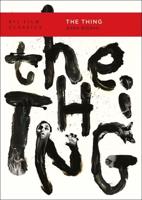Publisher's Synopsis
Mainstream media's relationship with mental illness is fraught. Deemed to misrepresent and sensationalise non-normative mental states, productions are said to solidify harmful attitudes in their audiences. Over the past two decades, puzzle films and complex TV shows have broken with time-honoured tropes of mental illness, offering alternative ways of visualising and narrating non-normative mental states.Bringing together cognitive media studies, narrative theory and cultural studies, Melanie Kreitler explores the synergy between complex narrative structures and representations of mental illness. Focusing on US American films and TV shows since the mid-1990s, the book shows how complex productions strategically use their narrative structures to evoke in viewers an experience similar to that of the neuro-non-normative protagonist. Moving beyond the formal characteristics and cognitive effects of narrative complexity, this book argues for the cultural impact that puzzle films and complex television can have on our understanding of mental illness on and off screens.









